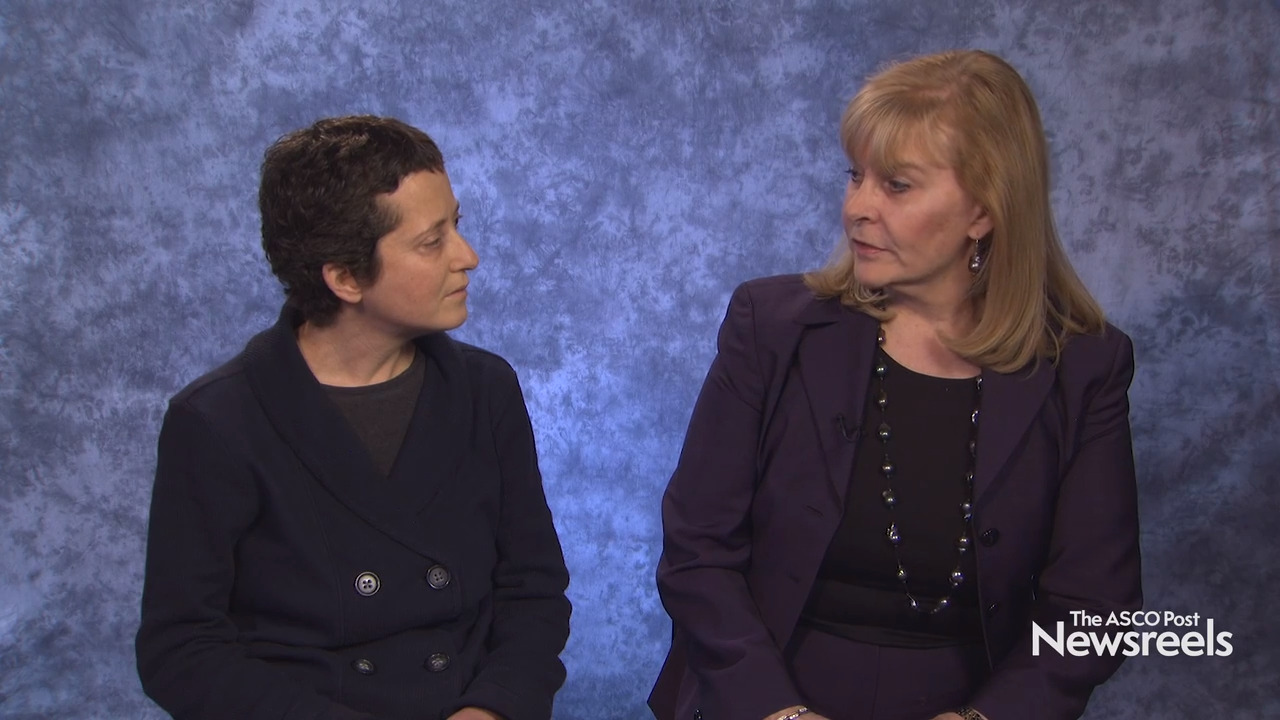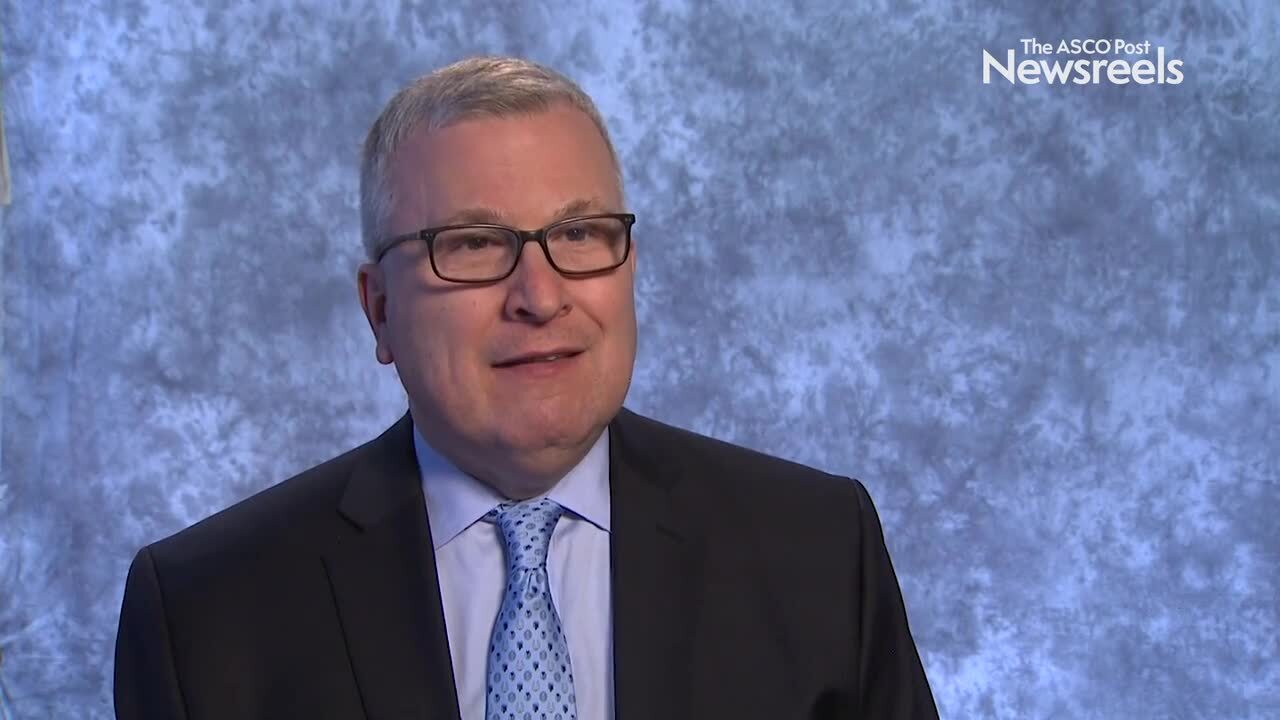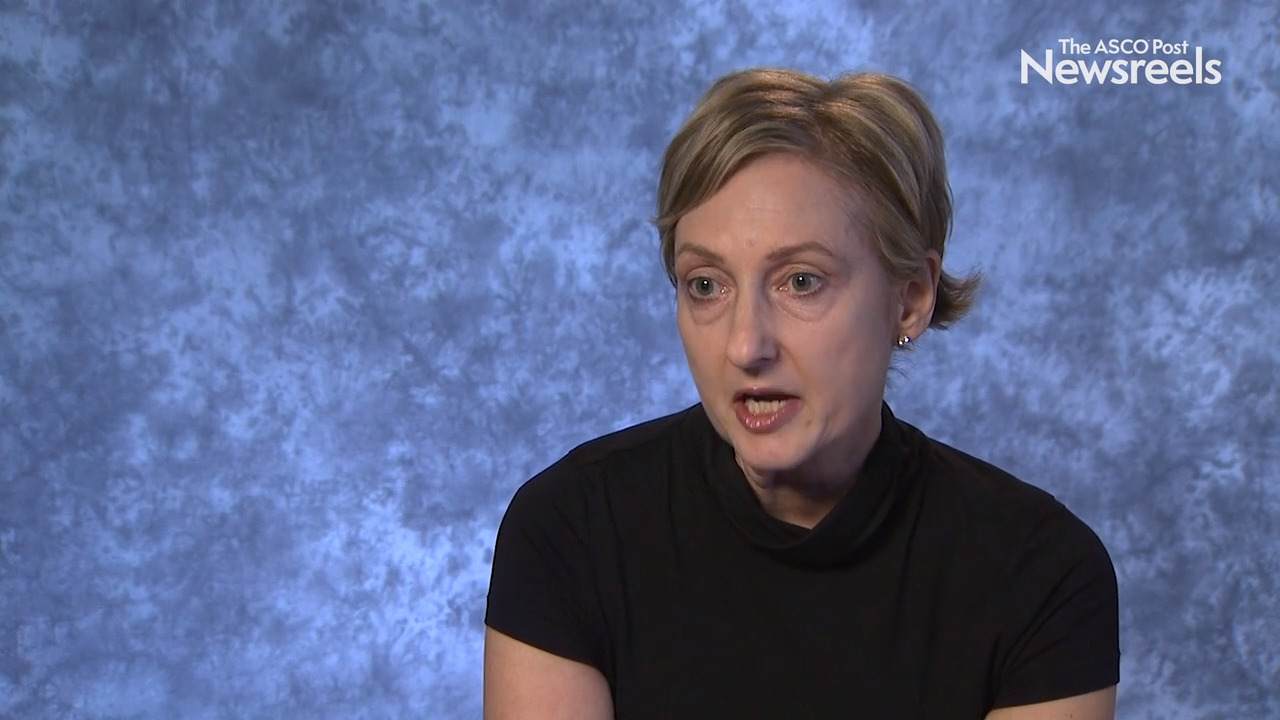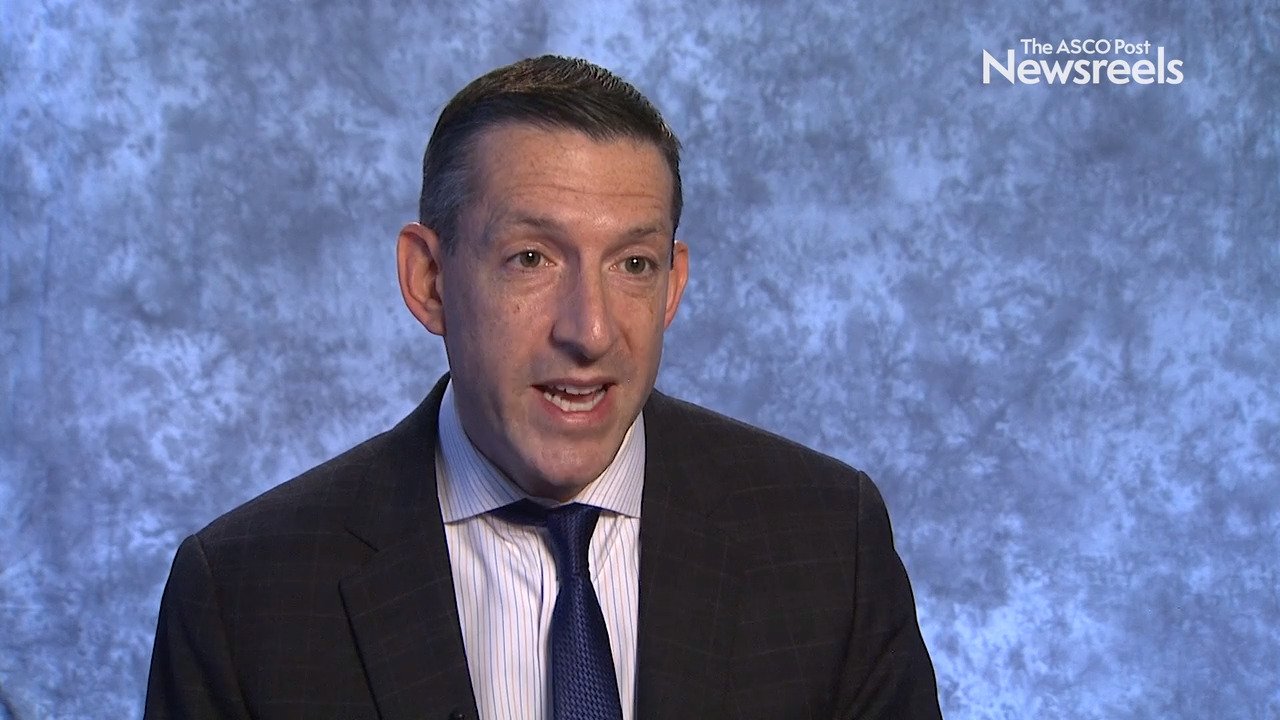Anas Younes, MD, on DLBCL: Phase III Trial Results
2018 ASH Annual Meeting & Exposition
Anas Younes, MD, of Memorial Sloan Kettering Cancer Center, discusses trial findings on ibrutinib plus rituximab, cyclophosphamide, doxorubicin, vincristine, and prednisone in people with previously untreated non–germinal center B-cell–like diffuse large B-cell lymphoma (Abstract 784).
Julie Vose, MD, MBA, of the University of Nebraska Medical Center, and Merav Bar, MD, of the Fred Hutchinson Cancer Research Center, discuss study findings on the long-term effects in people with relapsed or refractory non-Hodgkin lymphoma and chronic lymphocytic leukemia who received CD19-targeted CAR T-cell infusions, survived more than a year, and had at least 1 year of follow-up data after their first treatment (Abstract 223).
John P. Leonard, MD, of Weill Cornell Medicine/Cornell University, discusses phase III findings on lenalidomide plus rituximab vs rituximab plus placebo for people with relapsed or refractory indolent non-Hodgkin lymphoma (Abstract 445).
Saar I. Gill, MD, PhD, of the University of Pennsylvania, discusses findings from a prospective clinical trial on the high response rate in patients with chronic lymphocytic leukemia who received a combination therapy of CAR T cells plus ibrutinib (Abstract 298).
Laurie H. Sehn, MD, MPH, of the British Columbia Cancer Centre for Lymphoid Cancer, discusses a study by the Lunenburg Lymphoma Biomarker Consortium that confirmed previous reports on the negative prognostic impact of an underlying MYC-translocation for both progression-free and overall survival in diffuse large B-cell lymphoma (Abstract 344).
Mikkael A. Sekeres, MD, of the Cleveland Clinic, discusses phase III study findings on luspatercept to treat anemia in patients with very low-, low-, or intermediate-risk myelodysplastic syndromes with ring sideroblasts who require red blood cell transfusions (Abstract 1).





